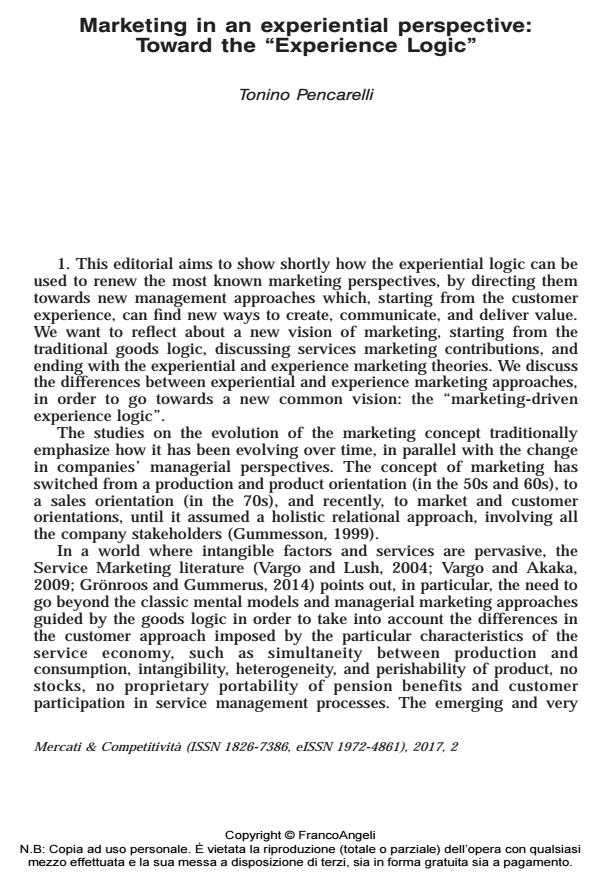Marketing in an experiential perspective: Toward the "Experience Logic"
Titolo Rivista MERCATI & COMPETITIVITÀ
Autori/Curatori Tonino Pencarelli
Anno di pubblicazione 2017 Fascicolo 2017/2
Lingua Inglese Numero pagine 8 P. 7-14 Dimensione file 427 KB
DOI 10.3280/MC2017-002001
Il DOI è il codice a barre della proprietà intellettuale: per saperne di più
clicca qui

FrancoAngeli è membro della Publishers International Linking Association, Inc (PILA), associazione indipendente e non profit per facilitare (attraverso i servizi tecnologici implementati da CrossRef.org) l’accesso degli studiosi ai contenuti digitali nelle pubblicazioni professionali e scientifiche.
- The Experience Logic as a New Perspective for Marketing Management Mara Cerquetti, pp.149 (ISBN:978-3-319-77549-4)
- The Experience Logic as a New Perspective for Marketing Management Emanuela Conti, pp.187 (ISBN:978-3-319-77549-4)
- Examining Luxury Restaurant Dining Experience towards Sustainable Reputation of the Michelin Restaurant Guide Kiattipoom Kiatkawsin, Ian Sutherland, in Sustainability /2020 pp.2134
DOI: 10.3390/su12052134 - The Experience Logic as a New Perspective for Marketing Management Tonino Pencarelli, Fabio Forlani, pp.1 (ISBN:978-3-319-77549-4)
Tonino Pencarelli, Marketing in an experiential perspective: Toward the "Experience Logic" in "MERCATI & COMPETITIVITÀ" 2/2017, pp 7-14, DOI: 10.3280/MC2017-002001